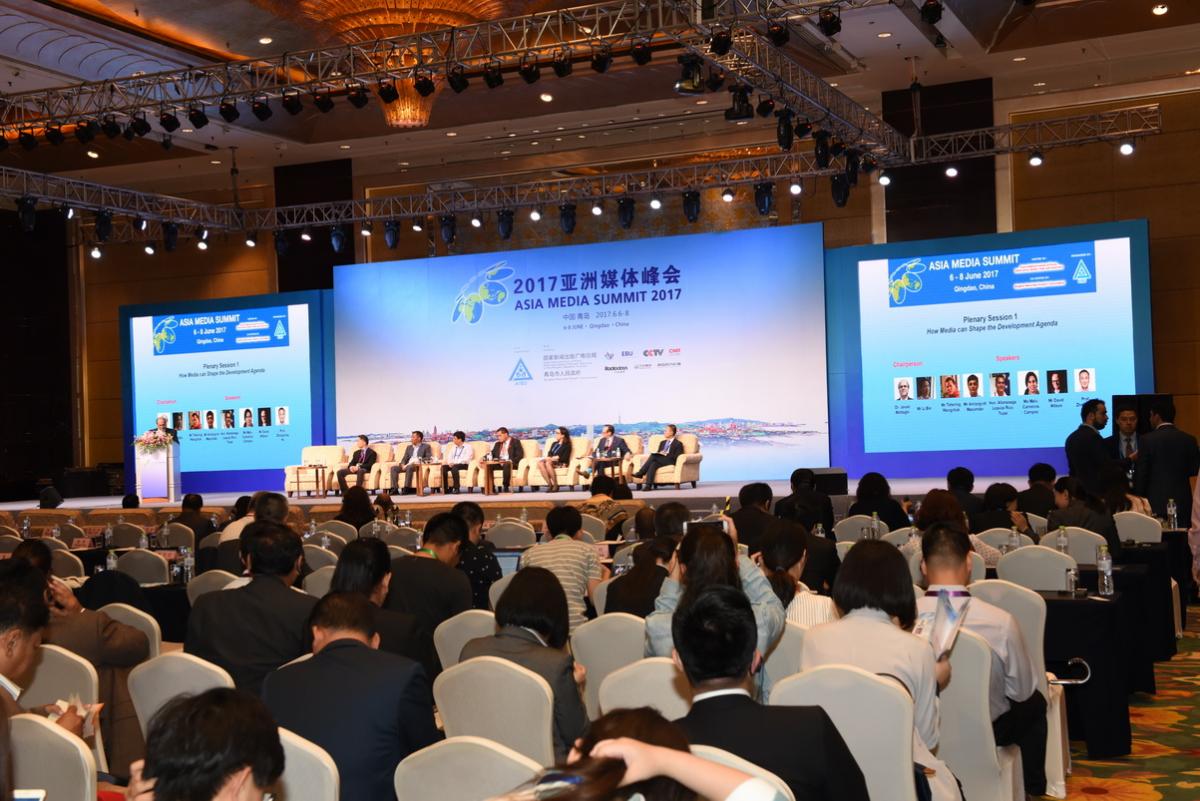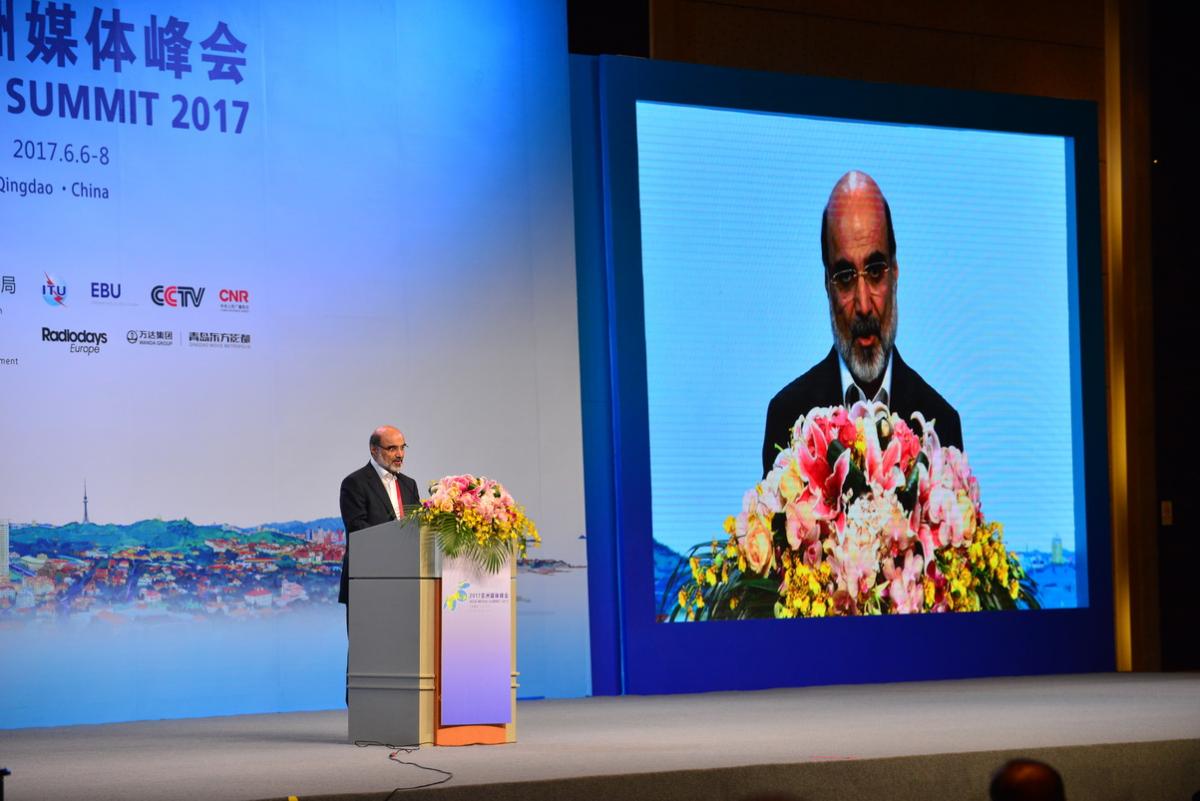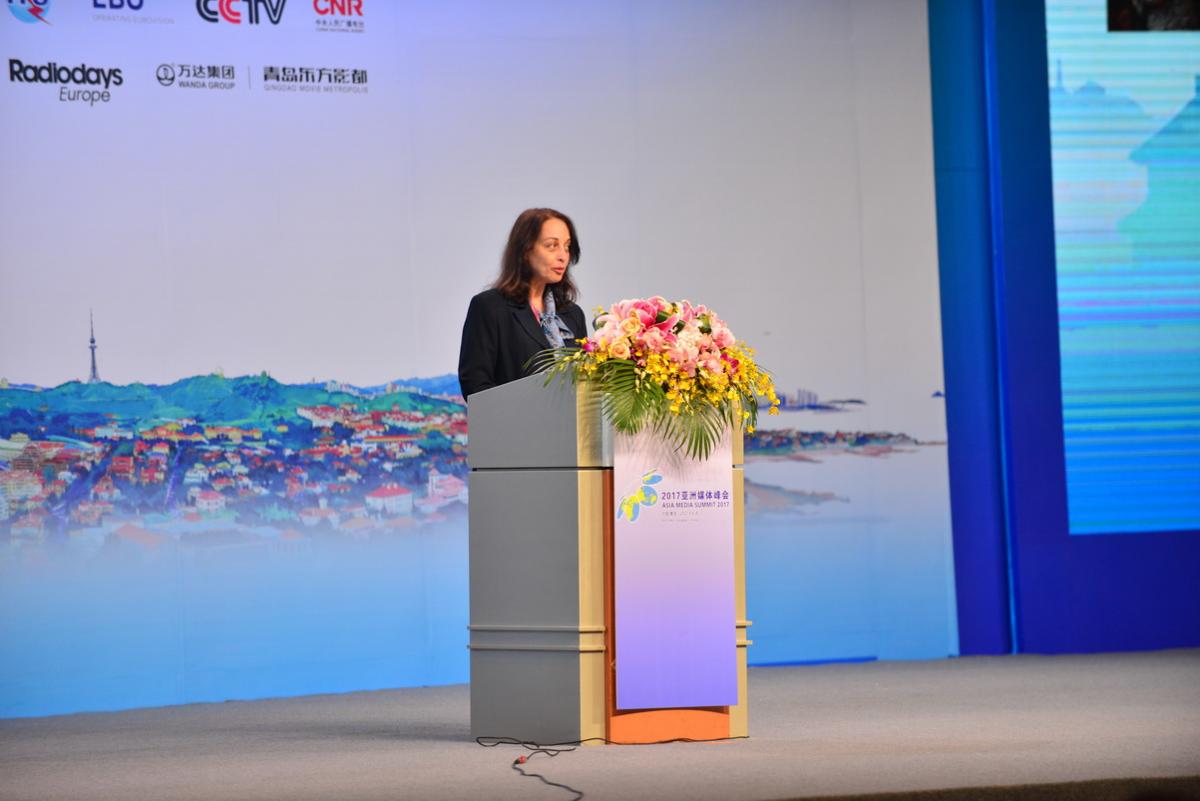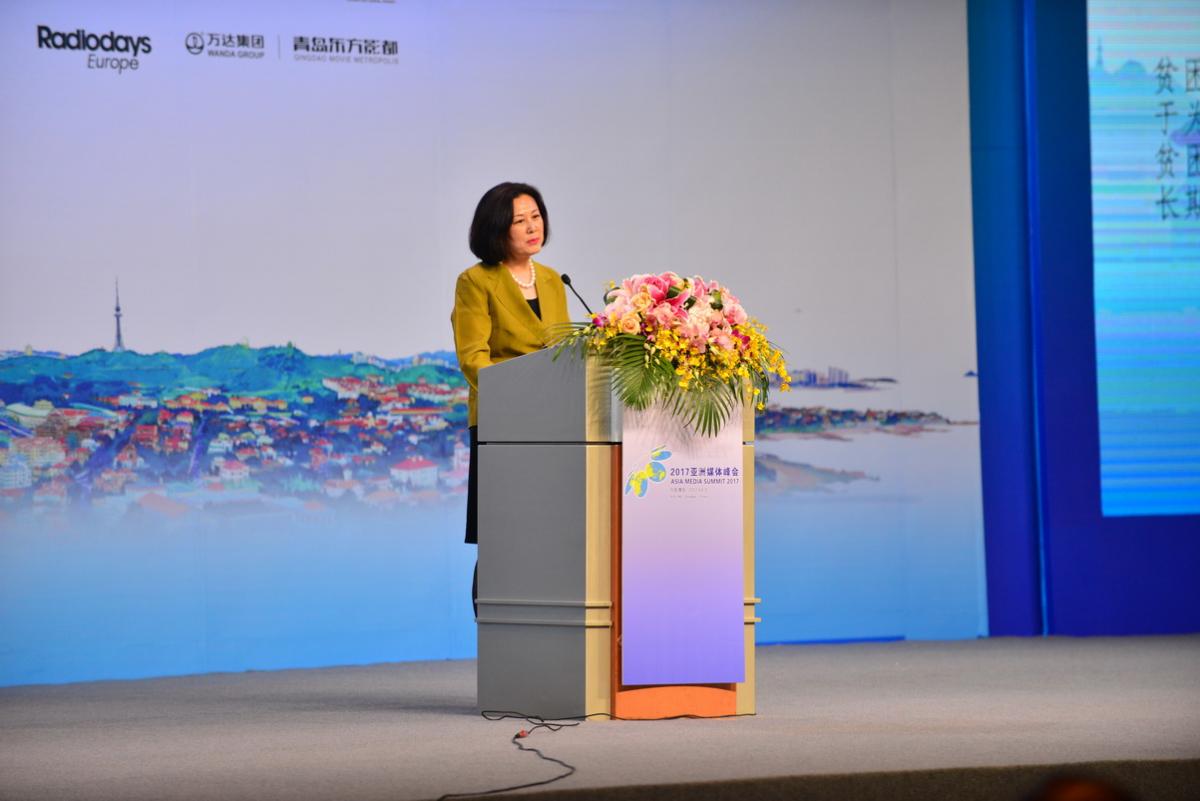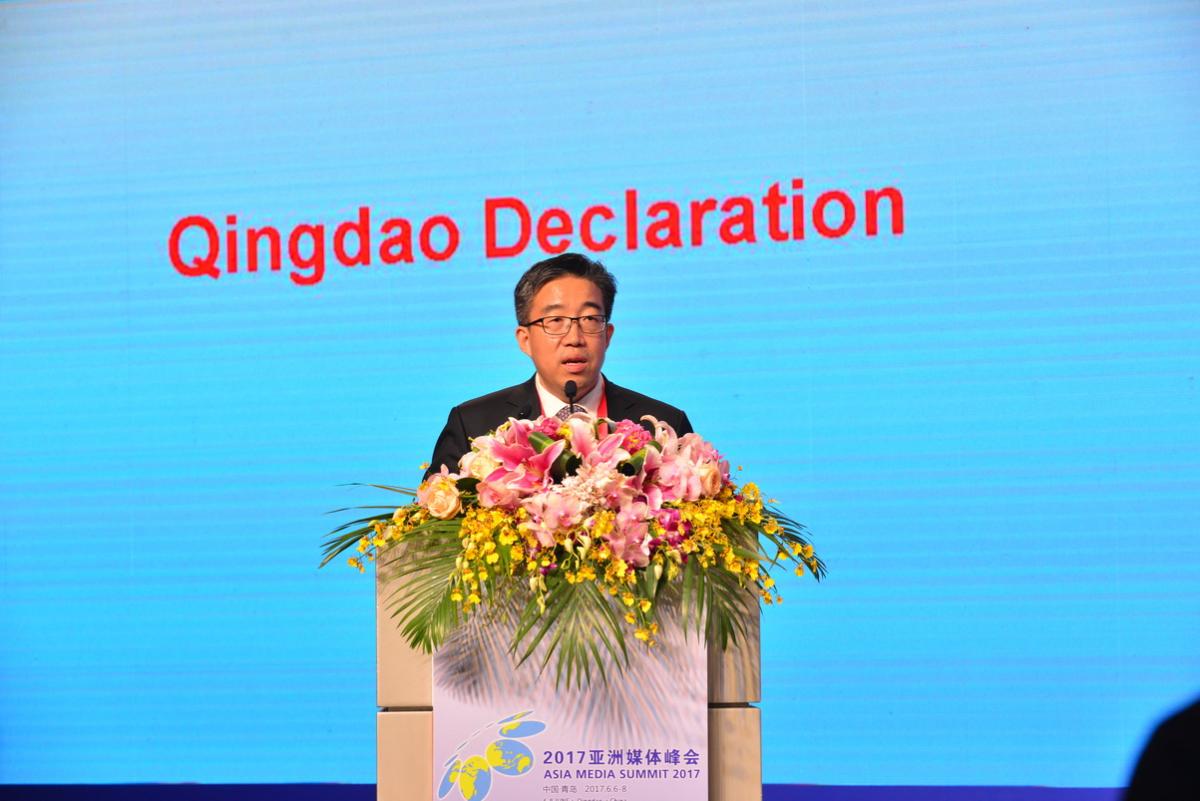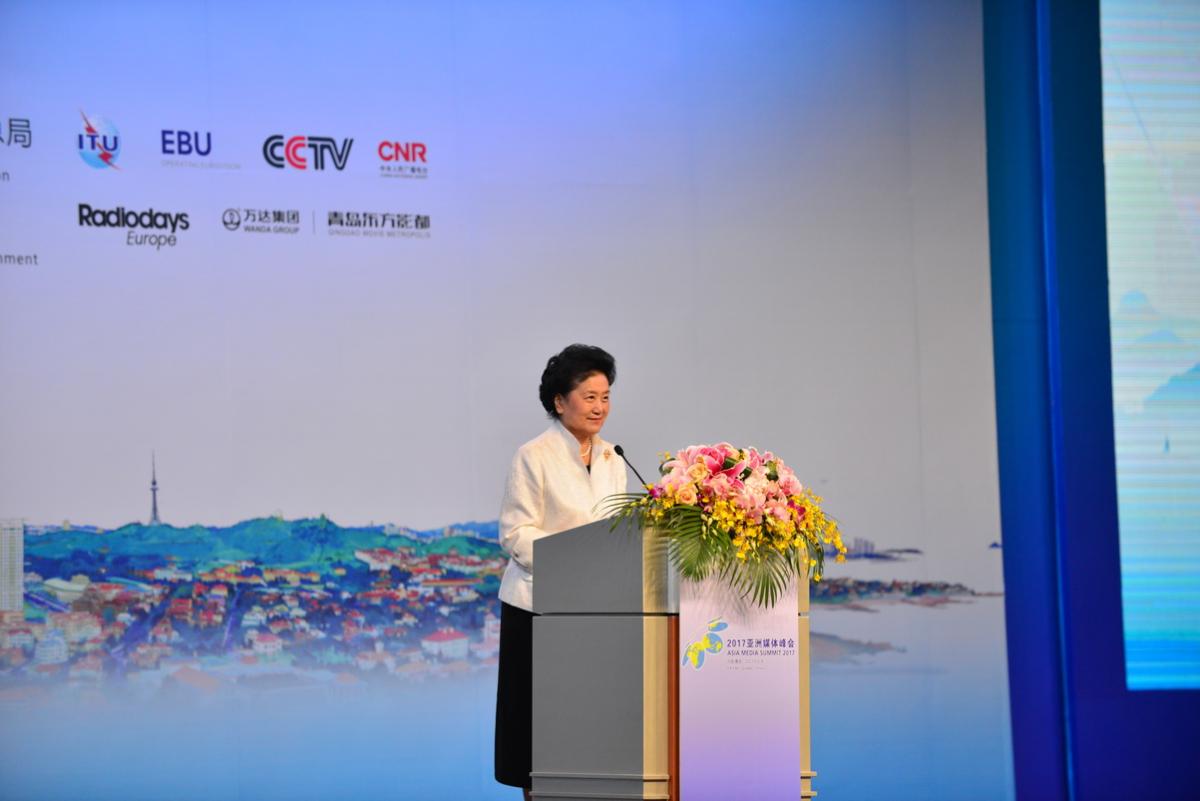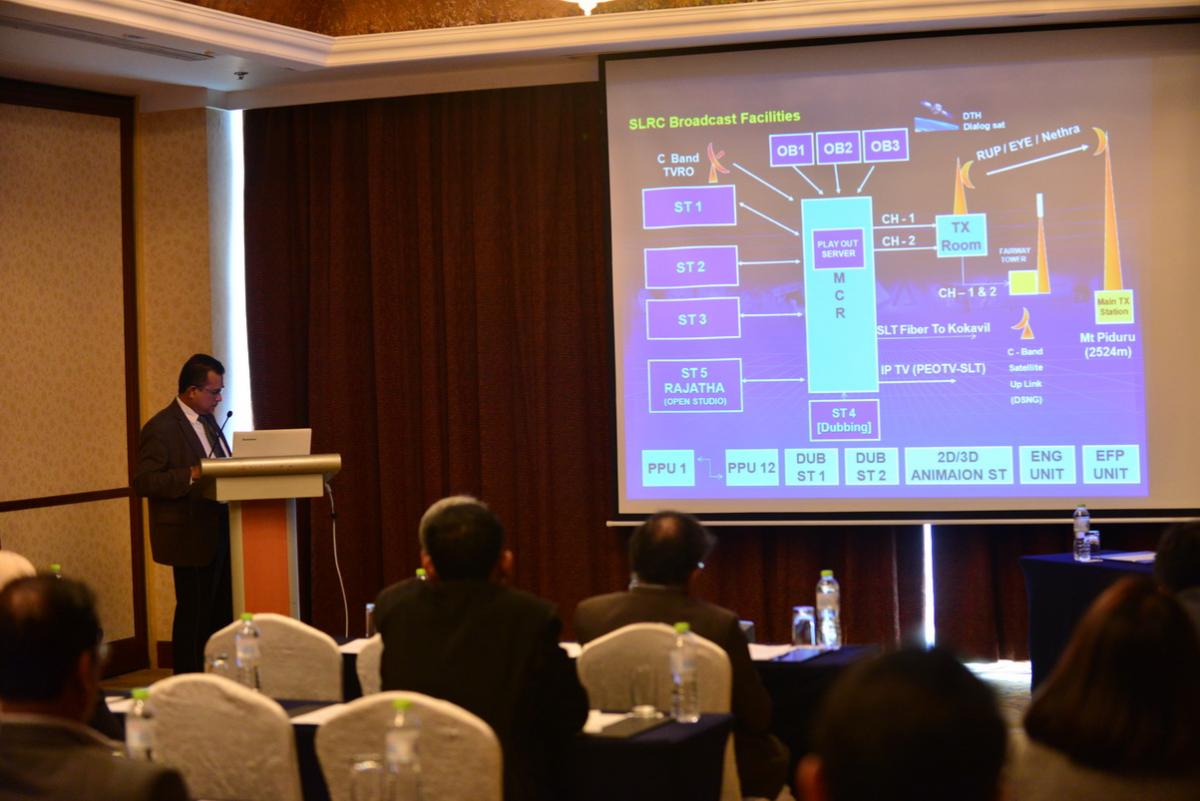Members of the AIBD Executive Board (EXBO) gathered recently in Maldives to identify approaches to strengthen the Institute’s sustainability and improve delivery of services to members.
Members of the AIBD Executive Board (EXBO) gathered recently in Maldives to identify approaches to strengthen the Institute’s sustainability and improve delivery of services to members.
They urge the AIBD secretariat to explore new revenue streams and ensure means to distribute funds equitablyfor its various training activities that will benefit member states.
“We need to spread funds, whether training for radio, or for TV, or for various areas of competence. AIBD should make a study of fair distribution and geographical coverage”, Dato’ Abu Bakar Ab Rahim, EXBO Chairman and Director-General of Radio Television, Malaysia, said.
Ms Yan Ni,SPT ViceChairperson and Director of Asian, Africanand Latin American AffairsDivision, SAPPRFT, China, recommended that AIBD pursue a regular evaluation of all AIBD workshops and seminars or seek out members’ feedback in order for members to know the value of AIBD training programmes to their organization. She also said results should also be made available to GC members.
AIBD Director Chang Jin said the organization conducts such evaluation every year and promised to make this available as part ofthe Director’s Report during the GC.
EXBO members met on 21 August 2017 to examine the Institute’s accomplishments during the one-year period. Their meeting was a part of the 16th AIBD General Conference & Associated Meetings in Male’, Maldives from 21-22 August 2017.
In their discussions,some EXBO members called on AIBD to conduct more in-country workshops and suggested additional topics, including training on media management, new media and use of smartphones in broadcasting.
Chairman Bakarrequested members to help share expenses with AIBD in pursuing in-country workshops, thereby reducing operational costs of the organization. He said they must let AIBD know their training needs so that the organization can identify appropriate experts to conduct in- country workshops.
The AIBD Director welcomed co-funding mechanisms in conducting some in-country workshops, saying this collaboration has been in place in Vietnam, Thailand, Korea and Malaysia, among others.
The EXBO also urged the secretariat to align its activities and collaborate with ABU not only to optimize financial assets, but also to ensure their activities do not duplicate. If similar activities are planned, a collaboration would best achieve the intended outcomes.
On the proposal by the secretariat that EXBO membership be expanded to include affiliate members, the EXBO decided to keep the status quo. It requested the secretariat to clarify the status, representation and rights of full and affiliate members, and study thoroughly how affiliate members can be better integrated into AIBD affairs.
The EXBO members also agreed to keep the status quo in response to the proposal of the secretariat that the President and Vice President of the General Conference be automatic Chairman and Vice-Chairman of EXBO.
The EXBO meeting began with the report from Director Chang Jin on some of the Institute’s accomplishments during a one-year period.
He said some 840 broadcasters from 45 countries covering mostly Asia-Pacific benefitted from AIBD-organized training workshops and seminars covering the period of 1st July 2016 to 30th June 2017.
Topics covered media management, media literacy, media law and ethics, entertainment, children and youth programmes, digitalization, disaster risk reduction, new and social media and radio production, among others.
In his presentation, he said the Institute approved five new affiliate members. These were Asian TV in Bangladesh, iM4U Radio Sdn Bhd (iM4U FM) in Malaysia, Seychelles Broadcasting Corporation, Startimes Communication Network Technology CO. Ltd., and China Communication Research Centre of SAPPRFT, China. Three affiliate members were suspended while membership of two others was terminated.
AIBD currently has currently 108 (43 full-member and 65 affiliate-member organizations, representing 46 (26+20) countries.
Member states represented in the EXBO meeting were Bangladesh, Cambodia, China, Korea, Malaysia, Thailand, and Vietnam. Indonesia and Pakistan did not attend the meeting.
EXBO Urges AIBD to Explore New Revenue Streams for Training
Members of the AIBD Executive Board (EXBO) gathered recently in Maldives to identify approaches to strengthen the Institute’s sustainability and improve delivery of services to members.
AIBD’s Strategic Plan Team Discusses Future Directions, Sustainability Issues
The strategic Plan Team (SPT) met recently during the 16th AIBD General Conference in Maldives to discuss, among others, funding sources for AIBD and the Asia Media Summit (AMS).
‘Telling our Stories- Asia and More’
The AIBD announces that the next Asia Media Summit 2018 in New Delhi, India will focus on the theme “Telling our Stories- Asia and More.”
Shaping the Development Agenda
To shape the development media, broadcasters in Asia offered diverse approaches from pursuing investigative pieces, expanding collaboration among media groups, to respecting local sensitivity to reach targeted communities.
Speaking at the Asia Media Summit, Mr Li Bin, Deputy Director of China Global Television Network, English Channel, China, said media must be true, accurate, comprehensive and balanced in reporting development issues.
Media’s Huge Task in the Face of War & Terrorism
As the world faces the ominous phenomenon of war, insecurity and terrorism, media assumes a huge task of promoting peace, friendship, morality and spirituality.
It has the responsibility to “combat any act which seeks to create phobia towards religions.” It also has to “ceaselessly combat injustice as the root cause of terrorism” in different parts of the world, Dr Abdolali Ali Askari, President of AIBD General Conference, and President, Islamic Republic of Iran Broadcasting, said in his welcoming remarks during the opening ceremony of the 14th Asia Media Summit from 6-7 June 2017 in Qingdao, China.UN Calls on Media to Engage Audiences on Development Issues
The United Nations urges broadcasters in Asia Pacific to continue reporting on development issues, including the 17 Sustainable Development Goals (SDGs), while promoting pluralism and diversity of views.
In a message to the 14th Asia Media Summit participants, Amina J. Mohammed, Deputy Secretary General of the United Nations, stressed media’s critical role in engaging and inspiring people, connecting communities, as well as holding governments accountable.UN Calls on Media to Engage Audiences on Development Issues
The United Nations urges broadcasters in Asia Pacific to continue reporting on development issues, including the 17 Sustainable Development Goals (SDGs), while promoting pluralism and diversity of views.
In a message to the 14th Asia Media Summit participants, Amina J. Mohammed, Deputy Secretary General of the United Nations, stressed media’s critical role in engaging and inspiring people, connecting communities, as well as holding governments accountable.Qingdao Declaration on Media and the World’s Sustainable Development Qingdao, China, June 7, 2017
Preamble:
Mindful of the pressing challenges facing our world, among them, poverty, conflict, socioeconomic inequality, environmental degradation and climate change that call for urgent and concerted action to accelerate development and progress in our society;
Noting that there are several creative and innovative mechanisms to achieve sustainable development, appropriate to every country’s own needs, expectations and pace of development, and demanding participation and support from government, private sector, civil society, local communities, families and individuals alike;
Enhance Media Exchanges and Cooperation to boost Global Common Development Speech at the Opening Session of Asia Media Summit 2017 Qingdao, June 6, 2017
President Ali-Askari,
Director Chang Jin,
Distinguished Guests,
Ladies and Gentlemen,
Dear Friends,
Good morning!
In this lovely season of midsummer, flowers blooming like a piece of brocade. I’m delighted to come to the coastal city of Qingdao, with representatives from 48 countries and 7 international organizations, for the opening session of Asia Media Summit 2017. Let me begin by extending warm congratulations on the opening of the Summit. I’d like to convey sincere greetings and best wishes to all the distinguished guests coming from afar, as well as participants from the Film Capital Summit!
Dealing with the Challenges of Digital Migration
The ITU Regional Office for Asia and the Pacific says costs, enormity of task, lack of government support and cooperation among stakeholders, and ever evolving technologies remain as some of the challenges in the migration from analogue to digital in the region.
“Not only does the setup of infrastructure for digital but also carrying out a simulcast service for a given period involve a lot of money and resources. On top of these the need to subsidise set- top-boxes to masses is an additional burden,” said Mr Wisit Atipayakoon, Programme Officer of the ITU Regional Office for Asia and the Pacific, Bangkok before participants at the AIBD/ITU/ABU regional workshop on “Digital Terrestrial Broadcasting TV and Radio Policy and Transition,” on 5 June 2017 in Qingdao, China.



